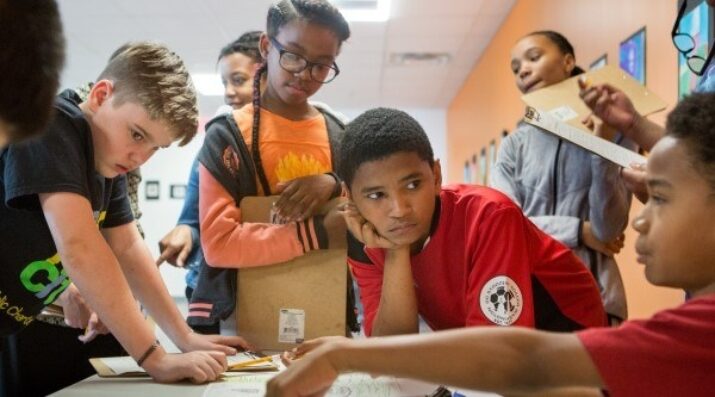Why Schools Need to Change
Student Voices on Collaboration, Engagement, and Support
Topics

Today’s learners face an uncertain present and a rapidly changing future that demand far different skills and knowledge than were needed in the 20th century. We also know so much more about enabling deep, powerful learning than we ever did before. Our collective future depends on how well young people prepare for the challenges and opportunities of 21st-century life.
Two middle school students explain why collaboration, engagement, and support for their personal growth make school meaningful and help them learn.
Education is most powerful when it reflects the voices and experiences of students themselves. At the Center for the Future of Arizona (CFA), we believe that truly effective learning starts with understanding what matters most to students and creating systems that meet them where they are. In a recent conversation, I had the pleasure of speaking with two middle school students, Nogales and Christian, who shared their insights into what makes their school experience meaningful. Their reflections highlight the importance of collaboration, engagement, and personal growth in the classroom—hallmarks of personalized learning and key to helping every student thrive.
The Power of Teamwork in Learning
For many students, the classroom is more than just a place for individual learning—it’s an environment where teamwork plays a crucial role. As Nogales, a 7th-grade student, shared:
“My favorite class would be my 7th grade honors math class. It’s very fun because we use teamwork within our group to solve different problems.”
This emphasis on collaboration underscores how group learning not only strengthens understanding of the subject matter but also fosters important skills like communication and problem-solving—skills essential for future success in the 21st century. These student-centered practices are foundational to effective personalized, competency-based learning models, which focus on student agency and growth over time.
Christian, an 8th grader, echoed a similar sentiment:
“When we work together, we can help each other understand better. Sometimes, I might not get something right away, but my teammates can explain it in a way that makes sense to me.”
This kind of peer support can be instrumental in building confidence and deepening comprehension, making learning a more dynamic and interactive experience.
Engagement through Interactive Lessons
Beyond teamwork, both students expressed a passion for lessons that actively engage them. Nogales described how hands-on and problem-solving activities in math keep students invested in learning:
“We get to do different kinds of puzzles and challenges. It makes learning more interesting and helps us think outside the box.”
Christian, too, highlighted the role of interactive learning in making subjects more accessible and enjoyable:
“I really like science experiments because we get to see things happen instead of just reading about them. It makes it feel real.”
Their comments emphasize how an engaging curriculum—one that includes active participation—can enhance student motivation and understanding.
The Role of Teachers in Creating a Supportive Environment
While students play a crucial role in supporting one another, it is clear that teachers also have a major impact on their experiences. When I asked Nogales and Christian about what makes a great teacher, both focused on encouragement, connection, and adaptability.
Nogales shared:
“A great teacher is someone who listens to you and helps when you’re struggling. They don’t just teach the lesson—they make sure you understand it.”
Christian added:
“I really like when teachers make the class fun and interactive. It helps me stay focused and want to learn more.”
These insights highlight how educators who take the time to connect with students and create an engaging atmosphere can significantly impact their motivation and success.
CFA’s research has shown that educators are the most important in-school factor for student success. That’s why we invest in building the capacity of teachers and school leaders to implement practices that are responsive to student needs and supportive of every learner’s path.
Hearing directly from students like Nogales and Christian reinforces the importance of collaboration, interactive learning, and support in shaping a meaningful educational experience. Their voices remind us that when students are active participants in their learning—and when educators have the tools and support to meet them where they are—education becomes not just an obligation, but a source of excitement, belonging, and personal growth.
I’m proud to work alongside educators, districts, and communities across Arizona to reimagine what school can be. Through our education programs and partnerships, we’re advancing a future where every student is known, valued, and prepared for what’s next.
Hear Directly from Nogales and Christian
Photo by Allison Shelley/The Verbatim Agency for EDUimages, CC BY-NC 4.0




